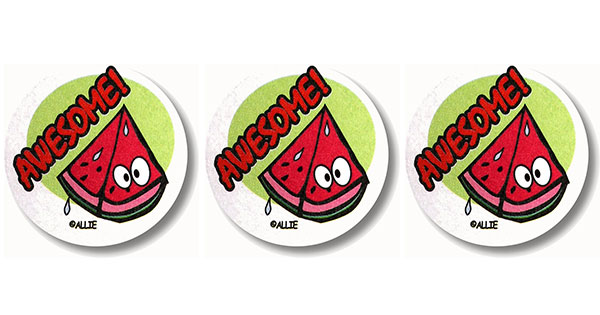
The 20 words most commonly used by Donald Trump, as compiled by YourDictionary.com, include amazing, terrific, tremendous, and huge (or, as Garry Trudeau titled his recent collection of cartoons about the hotelier, Yuge!). Such Trumpian superlatives aren’t just campaign hyperbole. During a 60 Minutes interview that was broadcast shortly after the election, the president-elect told Lesley Stahl of his win that “it is so big, it’s so enormous, it’s so amazing …” In a post-election phone call, Trump assured Pakistan’s prime minister that he was “a terrific guy” who was doing “amazing work” in a “fantastic country, fantastic place of fantastic people …”
I call this superlatalk. It doesn’t just characterize Trump and company. Inflated verbiage isn’t simply a conservative tic. The Huffington Post is fond of adjectives such as shocking, jaw-dropping, chilling, and its older sibling bone-chilling. HuffPost’s progressive cousin ThinkProgress has a particular penchant for shocking in its headlines. Nor is it simply those with a point to make or product to sell who routinely use puffed-up language. Think of all the superlatives that pepper our everyday discourse. It isn’t enough to call something good, great, or even excellent these days. To break through the static of verbal inflation, it must be fabulous, outstanding, superb, extraordinary, colossal. Or, if you’re a millennial: extreme, ultra, or uber (from the German prefix, not the ride service). In lieu of a simple yes, we’re prone to say, Absolutely! A good movie we saw must be awesome if anything at all.
Awesome could be the most overused, debased word in the modern American lexicon. Hard as it is to believe, this hackneyed adjective was originally a pious term. According to the Oxford English Dictionary, as a word meaning “full of awe, profoundly reverential,” awesome was first recorded some four centuries ago. Over time it became more generic, referring not just to sacred subjects but also to Disneyland rides, a recited poem, or the Jets’ upset win in Super Bowl III. Today this term is so ubiquitous that Los Angeles poet and bookseller John Tottenham has launched what he called the Campaign to Stamp Out Awesome. “Saying the word in my presence is like waving a crucifix in a vampire’s face,” Tottenham told Gale Holland of the Los Angeles Times. “It’s boiled down to one catchall superlative that’s completely meaningless.” Despite Tottenham’s efforts—which range from personal pleading to distributing stickers with a diagonal slash through AWESOME—that word is more ubiquitous and less meaningful than ever. Tottenham’s anti-awesome campaign, which he launched in 2012, has done little to diminish the application of this term to all manner of phenomena large and small. “Once only God could be awesome,” writes Erin Moore in her book That’s Not English. “Now even a mediocre burrito qualifies.”
Linguists call this process “semantic bleaching.” That refers to the weakening of a word’s meaning over time, usually through overuse. As we’ve seen, semantic bleaching applies to the growing number of superlatives used in everyday discourse. Even though we might want to point a finger of blame at Muhammad Ali for anointing himself “the greatest,” McDonald’s for “super-sizing” a modest meal, or Starbucks for calling their smallest cup of coffee a “tall,” superlatalk is hardly a modern phenomenon. According to the late historian Daniel Boorstin, Americans have always had a penchant for “tall talk” (or what Warren Harding so memorably called “bloviation”). An early American didn’t just sleep soundly, he “slept so sound it would take an earthquake to wake him.” When angry he would “blow up like a steamboat.” Davy Crockett was said to be able to “walk like an ox, run like a fox, swim like an eel, yell like an Indian, fight like a devil, spout like an earthquake, [and] make love like a mad bull.”
Americans may be especially prone to inflated terms, bleaching their meaning in the process, but without John Milton they wouldn’t have as many terms to bleach. The wealth of words contributed to our language by this 17th-century poet include exhilarating, stunning, and—Milton being a God-fearing Puritan—awestruck. In Paradise Lost he also introduced terrific, referring to the terror inspired by a hairy serpent with “brazen eyes.” Milton undoubtedly would have been appalled to discover that “terrific” was being used by Donald Trump to describe his hotels, but that’s the way it goes in today’s world of superlatalk.

